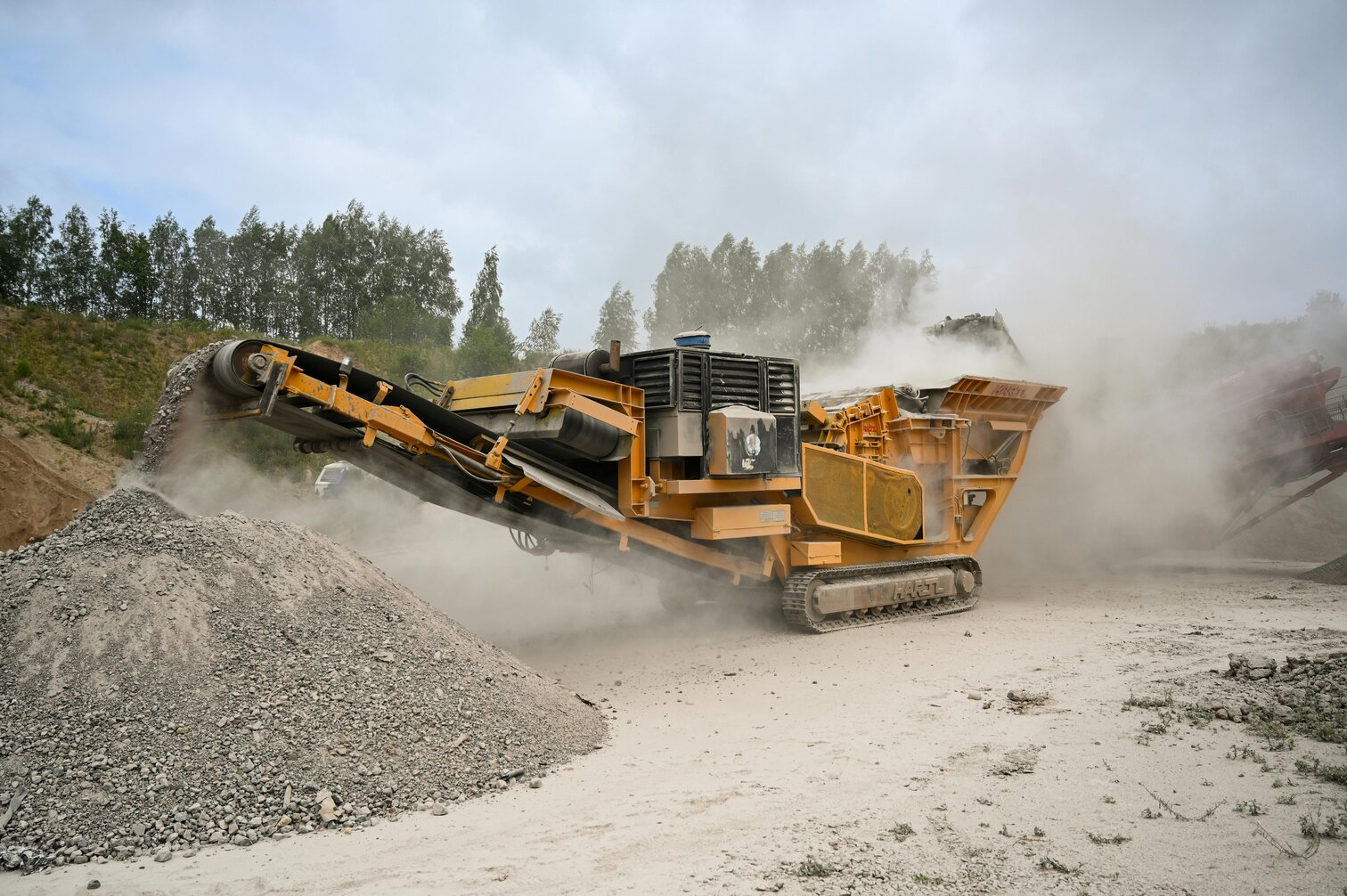Understanding the World of Crushing Equipment: A Comprehensive Guide Introduction to Crushing Equipment

Crushing equipment is fundamental across a wide range of industrial sectors, including mining, construction, quarrying, and recycling. Central to the functionality of these operations is an essential piece of machinery: the crusher. This crucial component is tasked with the primary operation of breaking down large, bulky materials into smaller, more manageable sizes.
In the mining sector, crushers are indispensable for reducing raw ore into particles fine enough for extraction and refining. By transforming large rock formations into a more workable size, crushers facilitate the extraction of valuable minerals and metals, thus playing a critical role in the profitability and efficiency of mining operations. Similarly, in the construction and quarrying industries, crushers are used to process natural stone and other raw materials into aggregate, a foundational material in infrastructure development. This process not only makes materials easier to handle and transport but also ensures they are in a form suitable for use in building projects.
In the recycling industry, crushers acquire a different but equally significant role. They are instrumental in breaking down waste materials like concrete, glass, and metal, turning what would be landfill waste into valuable recycled materials. This not only aids in waste reduction but also promotes sustainability by providing raw materials for new construction, thereby reducing the need for new resources.
The crusher, in each of these industries, is a linchpin that enables large-scale operations. Its efficiency and effectiveness directly impact the cost, timing, and environmental footprint of projects. Advanced crushers come equipped with innovative features like automated control systems, adjustable settings, and energy-efficient designs, enhancing their performance and further underlining their crucial role in various industrial sectors.
This article aims to shed light on different types of crushers, their functions, and why they’re indispensable in the machinery world. Discover more about the different types of crusher and their unique roles in various industries. The Significance of Crushers in Industrial Operations
Crushers are robust, heavy-duty machines specifically engineered to break down large rocks, minerals, and other hard materials into smaller, more manageable sizes. Their primary function is to facilitate the processing of these materials, either by reducing them to a size suitable for further refinement or by preparing them for direct use in various applications. This size reduction is a critical step in numerous industrial processes, as it significantly enhances the ease and efficiency of handling and processing the materials.
These machines find extensive use across a variety of industries, most notably in mining, quarrying, and recycling. In mining operations, crushers are indispensable in reducing ore into smaller fragments, making it easier to extract valuable minerals. In the quarrying industry, they play a vital role in turning large stones and rocks into aggregates of various sizes, which are fundamental for the construction industry. Additionally, in the recycling sector, crushers are essential for breaking down waste materials such as concrete, metal, and glass into reusable forms, thereby contributing to sustainable practices and waste management.
The design and operation of crushers vary depending on the type of material they are processing. For instance, jaw crushers, cone crushers, and impact crushers each have specific applications and operate on different principles to cater to the varied needs of the industry. Jaw crushers, for example, use a compressive force to break down large materials, while impact crushers use a high-speed impact to achieve the same. These machines are built to be durable and reliable, capable of handling the rigorous demands of continuous operation in harsh environments. Their efficiency not only optimizes the production process but also reduces operational costs, making them vital tools in their respective fields.
The Economic Impact
Crushers play a pivotal role in enhancing the economic viability of mining and construction projects by effectively reducing the size of materials. This reduction in size is crucial as it facilitates easier handling and processing of materials. Notably, crushers contribute to significant cost savings by minimizing the need for extensive material transportation. By breaking down larger rocks and materials into more manageable sizes, these machines reduce the volume of material that needs to be transported, leading to a decrease in transportation costs.
Furthermore, this process contributes to a reduction in transportation time, which is particularly beneficial in large-scale operations where efficiency and time management are critical. The ability of crushers to transform large, unwieldy materials into smaller, more transportable forms not only streamlines the entire construction or mining process but also contributes to environmental sustainability by reducing the carbon footprint associated with material transportation. Overall, crushers are invaluable assets in the construction and mining industries, offering both economic and environmental benefits.
Different Types of Crushers and Their Uses
Jaw Crushers: The Workhorses of Crushing
Jaw crushers are characterized by a fixed and a moveable jaw plate, creating a ‘V’ shape. They are ideal for primary crushing, handling hard, abrasive rocks and ores.
Impact Crushers: For Versatile Crushing
Impact crushers use high-speed rotors to strike the material, causing it to fracture along natural stress lines. They are well-suited for softer materials and recycling applications.
Cone Crushers: Precision Crushing
Cone crushers use a rotating spindle and concave surface to crush materials. They excel in secondary, tertiary, and quaternary crushing stages, particularly in mineral processing and aggregate production.
Gyratory Crushers: For High-Capacity Crushing
Gyratory crushers are similar to jaw crushers but feature a conical head and a concave surface. They are ideal for handling large quantities of hard materials in mining and large-scale quarrying operations.
Roll Crushers: Ideal for Material Size Reduction
Roll crushers consist of two rotating cylinders that crush materials between them. They are particularly useful in coal mining and in the preparation of bulk materials.
Choosing the Right Crusher for Your Project
Assessing Material Characteristics
The selection of a crusher depends on the material’s hardness, size, and other physical properties. For instance, jaw crushers are preferred for their ability to handle very hard materials.
Considering the Output Size and Capacity
The desired output size and the capacity of the crusher are crucial factors. Cone crushers, for example, are known for their ability to produce a more uniform particle size.
Understanding the Application
The application dictates the type of crusher needed. For aggregate production, cone crushers might be more suitable, whereas for recycling, impact crushers could be a better choice.
The Future of Crushing Equipment
Technological Advancements
The future of crushers lies in technology integration. Innovations in automation, real-time data analytics, and machine learning are set to revolutionize the efficiency and capabilities of crushing equipment.
Sustainability and Eco-friendliness
As industries move towards sustainable practices, the demand for environmentally friendly crushers is rising. Future developments are likely to focus on reducing emissions, energy consumption, and optimizing recycling capabilities.
Conclusion: The Indispensable Role of Crushers
Crushers remain an integral part of industrial operations, offering unparalleled efficiency in material handling and processing. Whether it’s in mining, construction, or recycling, the right type of crusher can significantly enhance operational efficiency. Understanding the various types of crushers and their applications is key to choosing the right equipment for your needs.








